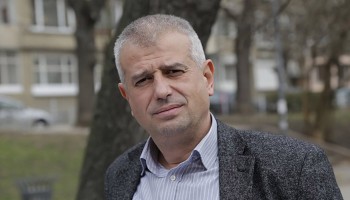Bulgaria’s opposition party MECh filed a motion of no confidence Thursday against Prime Minister Rosen Zhelyazkov’s Cabinet—the second in a week—this time accusing the government of corruption across multiple sectors, without publicly presenting evidence.
The government survived a no-confidence vote over foreign policy last Thursday. MECh party leader Radostin Vassilev told reporters the new motion was prompted by “corruption elements” allegedly uncovered within the ruling coalition, but he declined to provide documentation supporting the claims.
In a separate interview on Nova TV’s “Hello, Bulgaria” morning program, Vassilev admitted the motion was unlikely to pass but said it remains the only way to raise the issue in Parliament. “The law gives us this political opportunity—to bring very important topics to Parliament, not only about ongoing corruption, but also entirely new corruption models created by this government,” he said.
As of publication, the government had not made any official statements addressing the corruption allegations.
The motion is backed by two other opposition parties, Vazrazhdane and Velichie, and centers on alleged irregularities in public spending and the state budget.
Vassilev said the corruption surfaced during debate over Bulgaria’s 2025 state budget and represented a continuation of misconduct from previous administrations.
The centrist Continue the Change party said it would not support the motion, citing the upcoming European Commission report on Bulgaria’s bid to join the eurozone as a reason to avoid destabilizing the government.
Watchdog group Transparency International has previously warned that unsubstantiated anti-corruption claims used for political gain can undermine public trust in democratic institutions.
President Rumen Radev called the no-confidence motion “the strongest tool for the opposition in a parliamentary republic,” according to the Bulgarian News Agency. However, he cautioned that without solid motives and unity among the opposition, “this powerful tool gradually loses its effectiveness.”
Parliament is expected to debate the motion before the Orthodox Easter recess.






